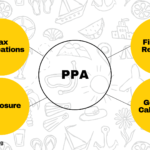Strategic Approach to Company Evaluation: Are you considering selling your company or buying a company? When it comes to mergers and acquisitions, valuation is critical. Through valuation, you know the fair market price of your company, as the advantages of this valuation process can’t be understated. It is essential to know the difference between the value of a company and the price. The price is the particular company’s value at a point of sale, which depends on the current market’s demand and supply. The company’s value is a potential buyer or investor’s amount based on his interests and profile.
Quick Contact
Need Help?
Please Feel Free To Contact Us. We Will Get Back To You With 1-2 Business Days.
[email protected]
+65 9730 4250
Company Evaluation

Benefits of company evaluation
Many business owners don’t know or simply underestimate the worth of business valuation. Some don’t even know what it is or where it starts. This is because of the complex nature of business valuation methods. The valuation methods to see the value of a business depend on many factors. Some of the elements are expected cash flow, the company’s size, the location of the company, and the products it offers. The technicality of valuation methods makes it worthwhile for an appraiser with excellent financial knowledge to do a business valuation. Such appraisers must know the company’s strategies, business model, value-creating elements, and the market it operates.
Factors to consider in company evaluation
The following key factors should be considered before carrying out a business evaluation:
1. Personal reasons
Investors are people with emotions too. Non-economic factors and emotions can affect their decision, leading to the business value processes involved. For instance, time will be of priority over the fair selling value of the company if the seller wants to sell his company as fast as possible.
2. Profitability and risk
Every consideration made during a business valuation is grouped into profitability and risk. Why is this so? An investor considers the opportunity cost while negotiating the deal. An investment option is expected if the deal is less risky and more likely to be profitable.
3. Company surroundings
The value of similar closeby companies affects the value of a company to be sold or bought. Both the market force and external factors affect the value. For instance, if there is high trading multiple volumes at the stock market, the worth of your company will be independent of its intrinsic value.
4. Valid information
For a company to have fair value, there is a need to have valid information. The company’s present and past data must be correct if the valuation will be proper without a guess assumption. When every data needed for evaluation is ready and accurate, valuable and reliable results can be made. The precise and quality development you will have in business valuation is dependent on the detailed and comprehensive company information or data at your disposal.
In today’s business world, making sound decisions is essential for success. But how can you be sure you’re making the right choices for your company? One way is to use a strategic approach to company evaluation. This four-step process can help you take a comprehensive look at your business and make decisions based on sound data and analysis.
The first step is to identify the critical factors used for company evaluation. This may include financial indicators, customer satisfaction levels, employee retention rates, etc. Data should be gathered and analyzed once the key elements have been identified. This data can then be used to create a baseline against which future performance can be measured.
The third step is to establish goals and objectives for the company. These goals should be based on the data analysis findings and should be realistic and achievable. The final step is to review the company’s progress against these goals periodically. This will help you identify areas where improvements need to be made.
Using a strategic approach to company evaluation can provide many benefits. It can help you make sound decisions based on data rather than gut feelings or personal preferences. It can also help you identify problems and issues early and value the business with right data and information.




